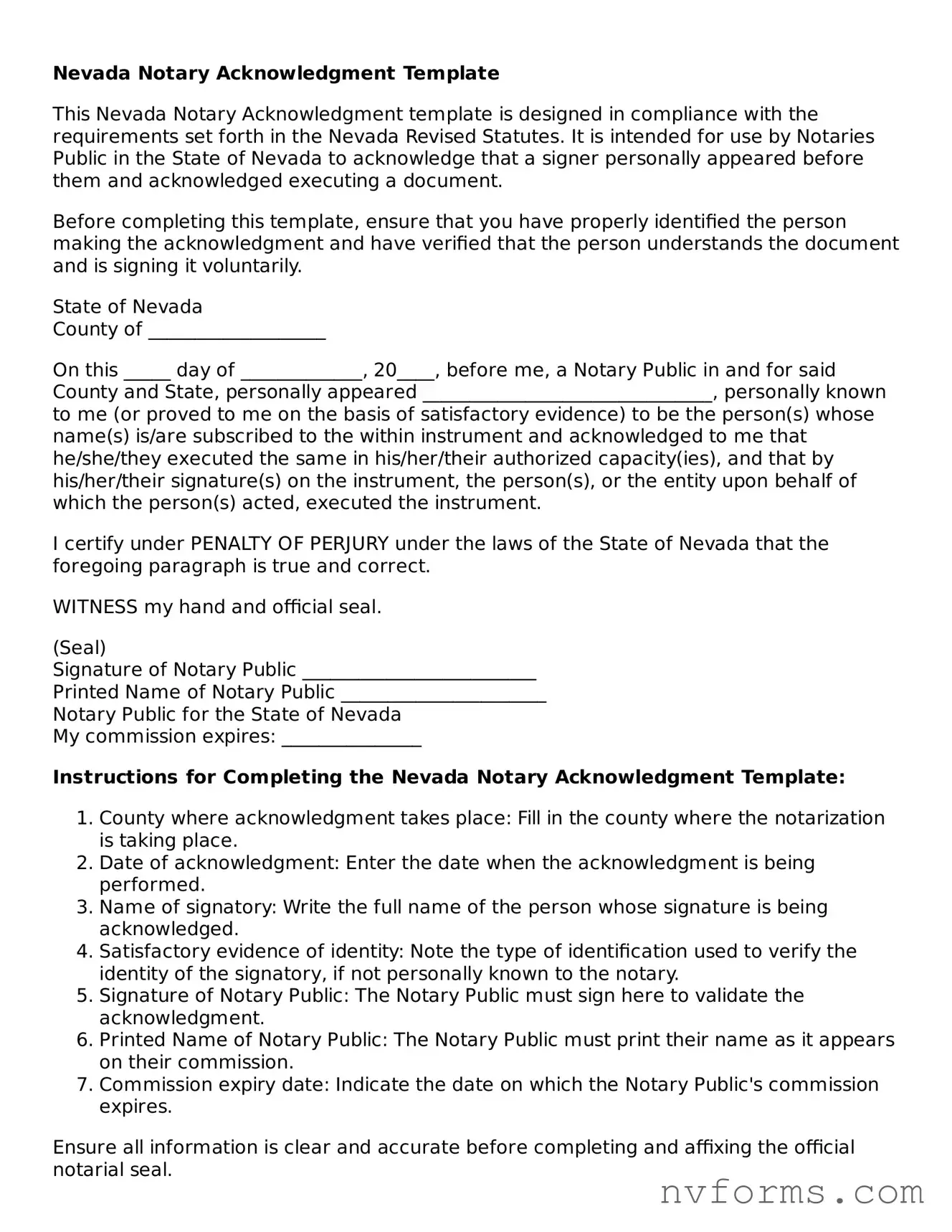Free Notary Acknowledgement Form for Nevada
A Nevada Notary Acknowledgement form serves as a formal declaration, acknowledging that a signature on a document was made willingly and authentically by the signatory, in the presence of a notary public. This crucial step ensures that parties in a variety of transactions can trust the authenticity of the signed document. It is a cornerstone in the process of notarization, providing a layer of verification and security that is recognized across legal and business domains.
Launch Editor

Free Notary Acknowledgement Form for Nevada
Launch Editor

Launch Editor
or
⇩ Notary Acknowledgement File
Don’t stop now — finish the form
Finish Notary Acknowledgement online using an easy step-by-step flow.